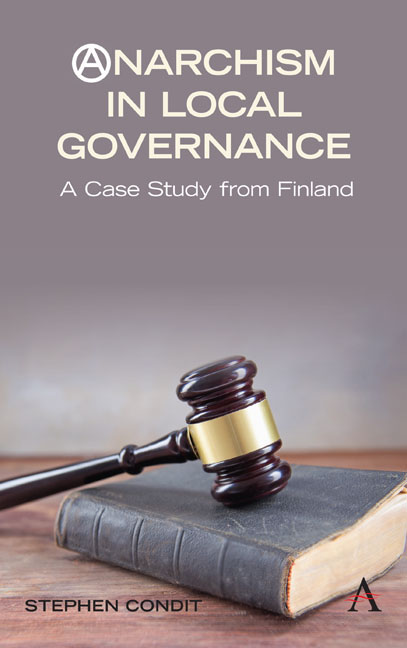Book contents
- Frontmatter
- Dedication
- Contents
- Acknowledgements
- Chapter One Introduction: The Prospects of My Situation
- Chapter Two Evoking Anarchism
- Chapter Three Municipal Possibilities of Anarchist Praxis
- Chapter Four The Impossible Ideals of Libertarian Municipalism
- Chapter Five A Municipal Expedient for Anarchists
- Chapter Six Latent Anarchism in Citizen Associations
- Chapter Seven An Equivocal Vindication
- References
- Index
Chapter Six - Latent Anarchism in Citizen Associations
Published online by Cambridge University Press: 06 September 2019
- Frontmatter
- Dedication
- Contents
- Acknowledgements
- Chapter One Introduction: The Prospects of My Situation
- Chapter Two Evoking Anarchism
- Chapter Three Municipal Possibilities of Anarchist Praxis
- Chapter Four The Impossible Ideals of Libertarian Municipalism
- Chapter Five A Municipal Expedient for Anarchists
- Chapter Six Latent Anarchism in Citizen Associations
- Chapter Seven An Equivocal Vindication
- References
- Index
Summary
The next task in my project is to reprise the central theme of citizen participation in voluntary associations as a realm of empowerment to self-governance and the prefigurative transformation of the social order. In my initial depiction of this dimension of anarchism, I attempted to identify some essential features without which citizen action could not be considered a form of anarchism. Correspondingly, should anarchism neglect these features or violate their strictures, it could not be trusted as an ethically justifiable prefiguration. Some of these features are, for example, a striving for communality to represent ideals of virtue with which we have a duty to comply, and mutual responsiveness to the forms of these ideals promoted by other associations, even when they conflict. Citizen associations must constitute a civil society characterised by demonstrations of virtue rather than submission to domination. A corollary commitment is to repossess and transform political authority against exercises of power which cannot claim our obligation to comply because they do not empower us to self-governance. A corollary condition is considerable independence from statist institutions, including the municipality, and simultaneously an engagement with them, particularly the municipality, both cooperatively and adversarially, to increase the significance of non-and post-statist potentialities. This entails a development of participatory democracy embracing but transcending the formal institutions of political representationalism.
We must not naively assume that citizen associations invariably demonstrate or prefigure empowerment to self-governance. Experience in Finland as elsewhere has often been that citizen activism exacerbates inequality, exclusion and vulnerability to domination, both in their own structures and in their functions of being co-optated by the ruling order, using its language, procedures and interests (Luhtakallio and Mustaranta 2017, 11– 42). The capability to participate correlates positively with other social and political capabilities. Excluded persons are easily considered culpable for their disempowerment, particularly when associations go to some lengths to mobilise and recruit them. One considerably successful remedy may be enlargement of participation to nominally non-political action, such as diverse engagements of dramatic improvisation and amateur theatre productions. The burden of anarchist praxis may be to stimulate any kind of publicly local participation in the expectation that eventually it will address local circumstances and empower persons to confront them even without an explicit intention to do so.
- Type
- Chapter
- Information
- Anarchism in Local GovernanceA Case Study from Finland, pp. 269 - 328Publisher: Anthem PressPrint publication year: 2019



